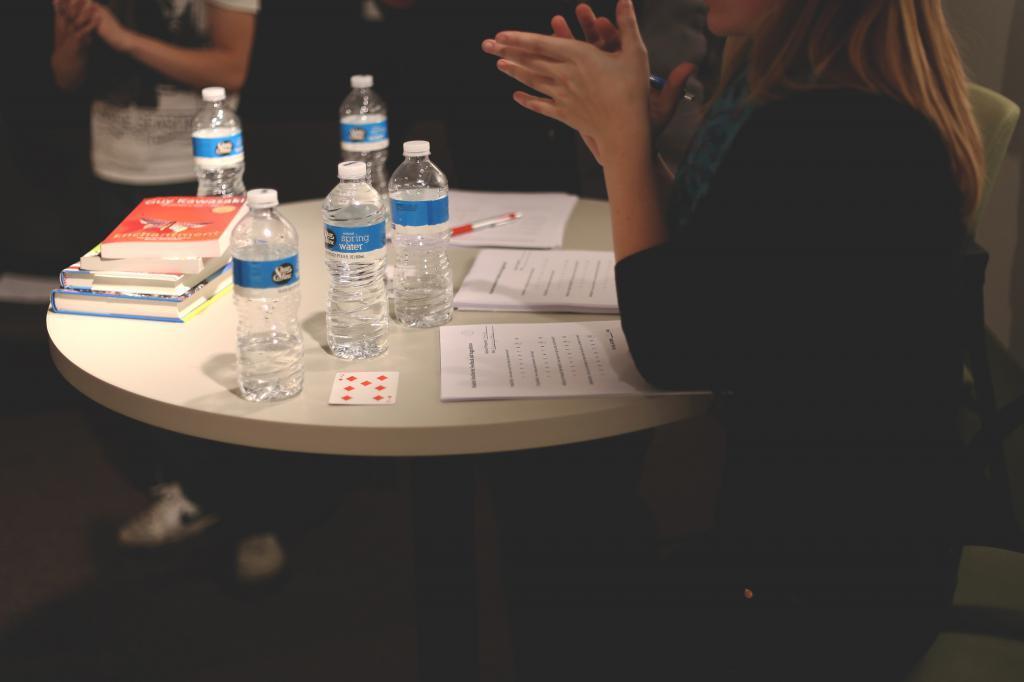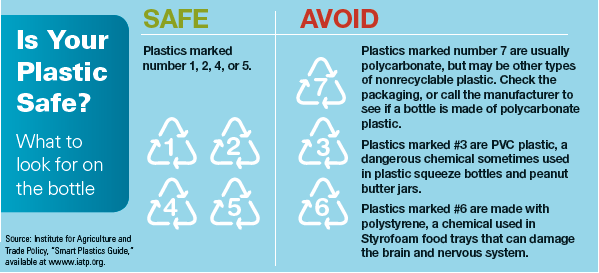Plastic Water Bottle Safety
Plastic water bottle safety issues are getting more attention recently. People are not simply carrying a disposable plastic water bottle without any question or concern. It was convenient and believed to be a safer option, specially to places where tap water quality was not good enough. Then it was discovered that some plastic bottles leach some toxic chemicals to the water, that are harmful to human health and development. So, it is not all of them, but some are not safer to use and it is all about the material they are made of.

Plastic Water Bottle Safety Issue – The Type of Material:
A safer choice can be made by looking into the recycling codes imprinted under the
plastic bottles before buying them. Following are the different plastic bottle
materials and the corresponding recycling code: -
Code 1 PETE or PET (polyethylene terephthalate) – Usually thin clear material and used for most water and soda bottles. Studies indicate that this plastic is safe for single use only. However, these bottles are not recommended to be reused or heated.
Code 2 HDPE (high density polyethylene) – Thick, opaque Thick and opaque quality plastics usually used for milk and water jugs, juice bottles etc. It is suggested to limit their usage as well.
Code 3 PVC or V (Polyvinyl chloride)- They may be rigid or flexible and usually used for making commercial grade plastic wraps, some type of food and detergent containers etc. It is recommended to avoid this as manufacturing of PVC creates dioxin, a potent carcinogen that contaminates humans, animals and the environment.
Code 4 LDPE (low density polyethylene) – They are soft and flexible plastic usually used in plastic grocery bags, plastic wrap, bubble wrap etc. these are one of the safer plastic to use.
Code 5 PP (polypropylene) - This
is hard but flexible plastic and usually used in ice cream and yogurt
containers, drinking straws, syrup bottles etc. It is also one of the safer
plastic but recommended to recycle whenever possible.
Code 6 PS (polystyrene) - This is rigid plastic usually used in styrofoam coffee cups and meat trays; opaque plastic spoons, forks etc. They are recommended to avoid as they can leach styrene, a known neurotoxin with other harmful health effects.
Code 7 Other (usually polycarbonate) – There are potential
health risks from a chemical in the polycarbonate plastic known as bisphenol A,
or BPA, synthetic estrogen. BPA acts as a faux-estrogen and has been linked
lots of health risk including asthma, cancer, infertility, low sperm count,
heart disease, liver problems and ADHD. Usually this plastic is used in 5-gallon
water bottles, some baby bottles, lining of metal food cans etc. Polycarbonate plastic
water bottles are strongly recommended to be avoid.

BPA free Plastic Water Bottle Safety- Is it absolutely risk free?
Professor George Bittner and his group (professor of neuroscience at the University of Texas at Austin), published one of their research papers in 2011 (https://www.ncbi.nlm.nih.gov/pmc/articles/PMC3222987/). The result showed that almost all commercially available plastic products they sampled independent of the type of resin, product, or retail source, leached chemicals having reliably-detectable estrogenic activity, including those advertised as BPA-free. In some cases, BPA-free products released chemicals having more estrogen activity than did BPA-containing products. Although how harmful these BPA alternatives to human health is not yet tested or determined.
Hope this information will help you to make safer choices. The best solution is to carry your own water bottle whenever possible.
Go Back to the Bottle Water Page
More on Plastic Water Bottle Safety
Total Visits to Site: